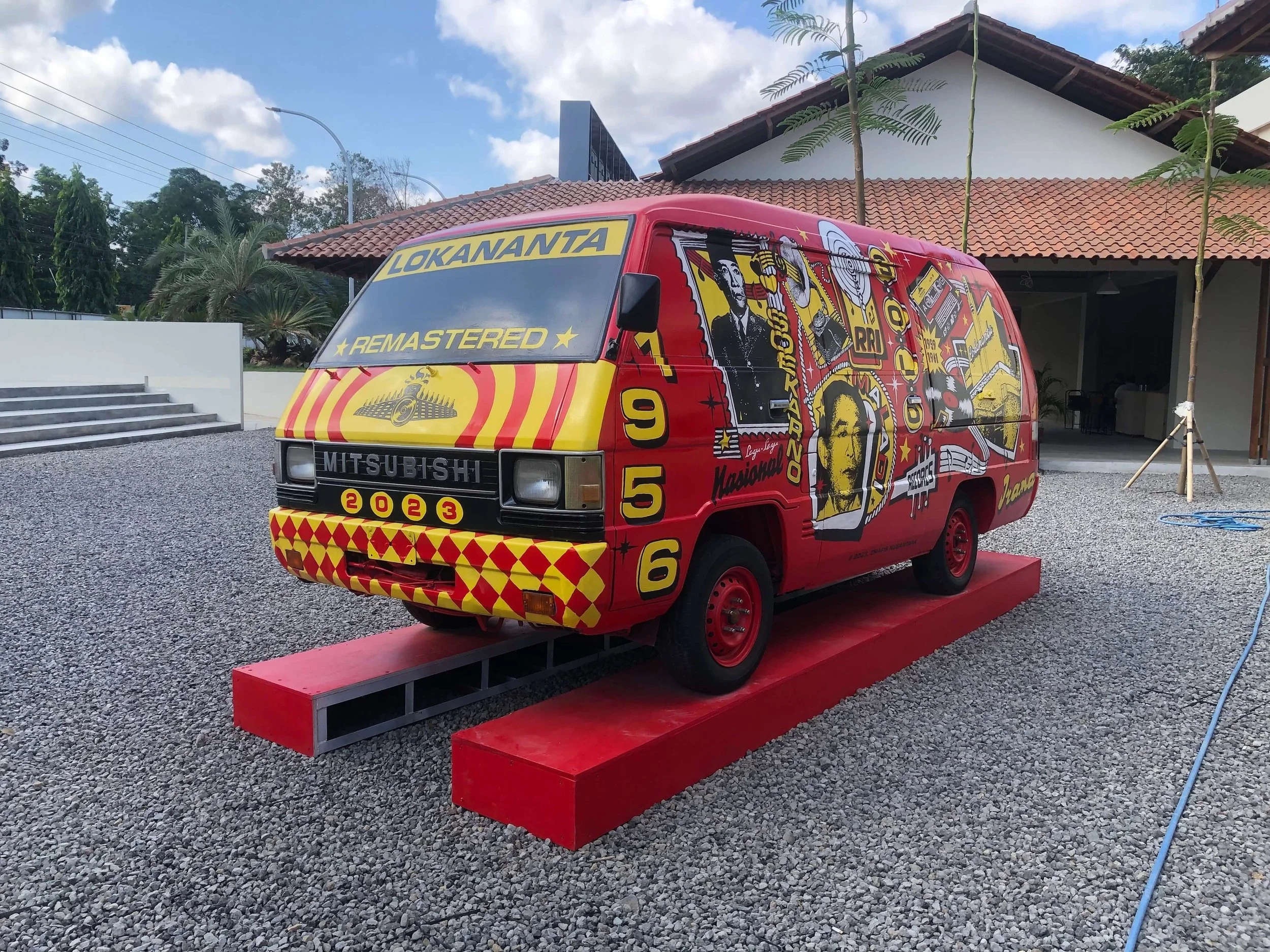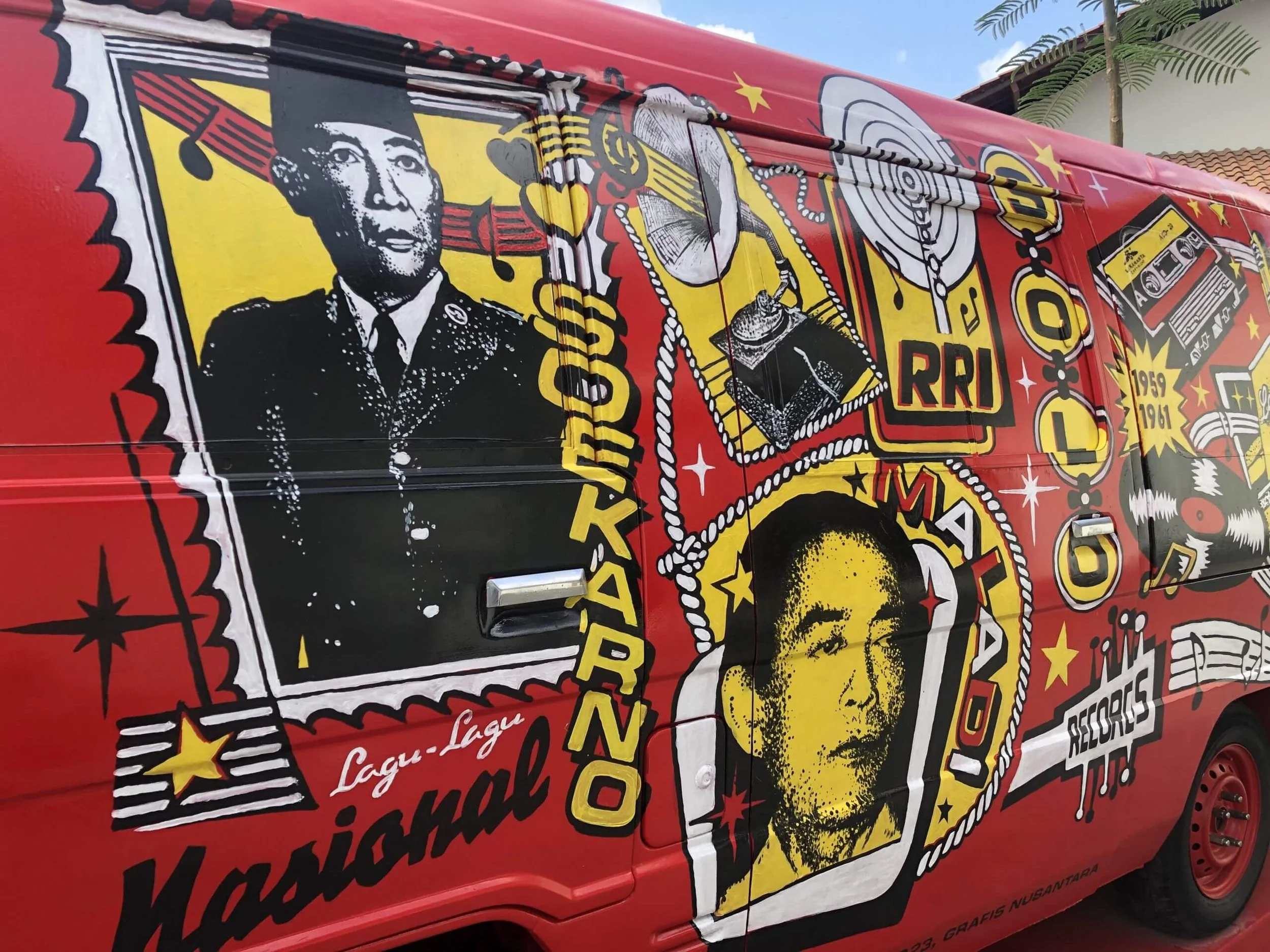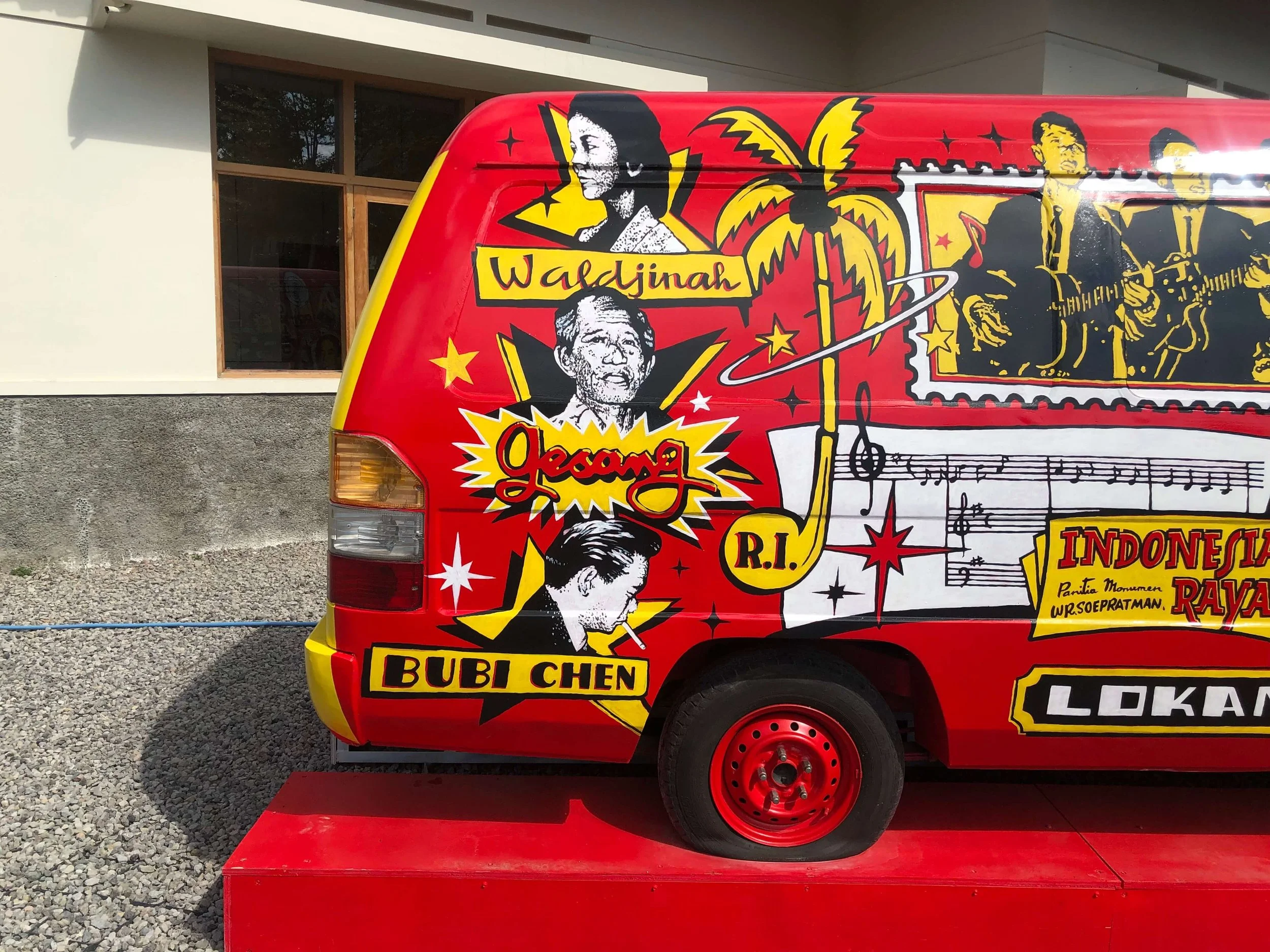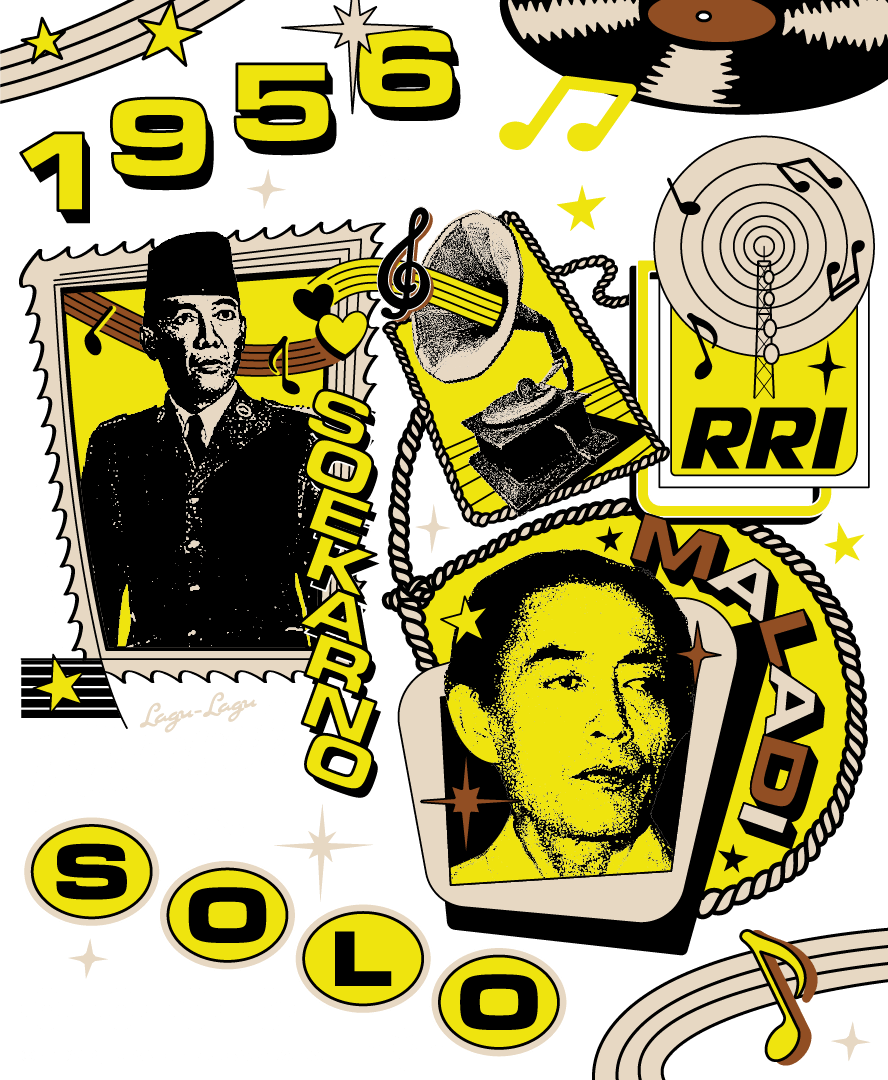Melodi Perjalanan (2023): Grafis Nusantara at Lokananta Remastered
Original article published at grafisnusantara.com.
The term 'Remastered' commonly indicates a specific music album that has undergone reissuing through the aforementioned process. Such efforts can also serve as archiving processes in the context of preserving and safeguarding copyrighted works contained in recordings that are considered cultural heritage or artistic achievements.
The 'Lokananta Remastered' exhibition adopts this term as a concept for an exhibition that fills the temporary gallery space of the Lokananta Museum, as part of the opening of the refurbished Lokananta Building in Surakarta, Central Java. This exhibition employs a collaborative and interdisciplinary approach to respond to and interpret the archives of Lokananta Records, encompassing music, audio-visual elements, visual arts, and graphics. That said, Grafis Nusantara is honoured to be a part of the featured artists in the exhibition.
Source: Personal documentation, 2023.
Source: Personal documentation, 2023.
Source: Personal documentation, 2023.
The establishment of Lokananta can be considered as related to the initiative to archive Indonesian music. President Soekarno ordered every RRI station across Indonesia to send at least two regional songs for duplication. From there, Lokananta took on the responsibility of producing its own recordings. Essentially, Lokananta serves as the central bank of Indonesian music archiving. Unfortunately, the archiving effort stalled midway, and not many people are aware of the significant influence Lokananta exerted on the development of the music industry in Indonesia.
By utilising Lokananta's recycled mobile unit as a "monument," Grafis Nusantara presents Lokananta's visual archives in the form of illustrations and photos of recordings, documents, and data from previous research conducted on Lokananta's releases. This work invites the audience to reminisce about Lokananta's glorious days since its inception in the 1950s, showcasing prominent names associated with Lokananta such as Gesang, Waldjinah, and Bubi Chen. Lokananta's recordings also encompass several historical events in Indonesia, including the first recording of "Indonesia Raya" and President Soekarno's state speeches.
Lokananta stands as a testament to resilience in the Indonesian music industry, having proven its ability to stand strong amidst the rampant piracy cases in the 1980s and the uncertainty of its status post-Reformation. We hope this work inspires anyone who witnesses it to delve more deeply into Lokananta, to ignite the spirit that has been "buried" for so long, and to foster optimism about the various possibilities that can emerge in the future.







